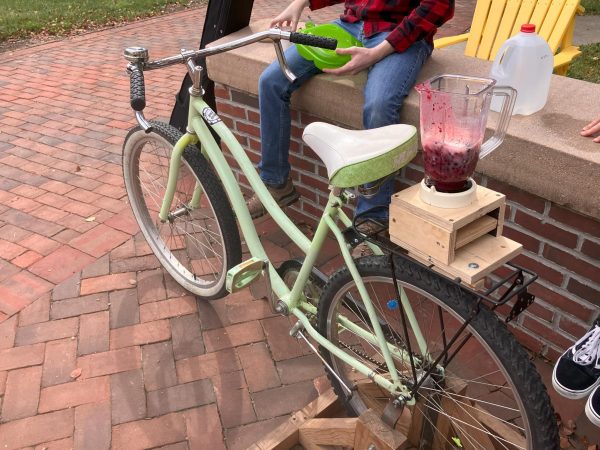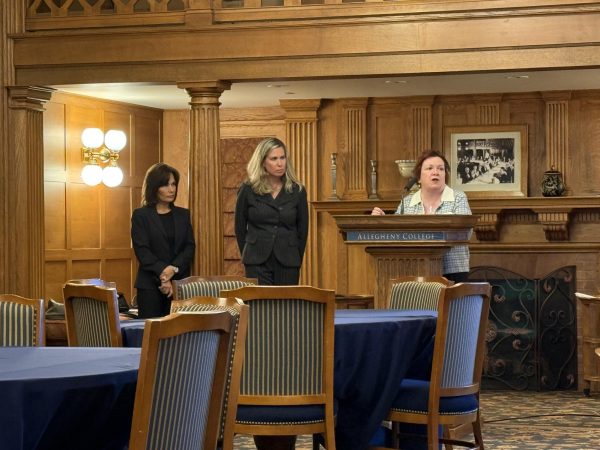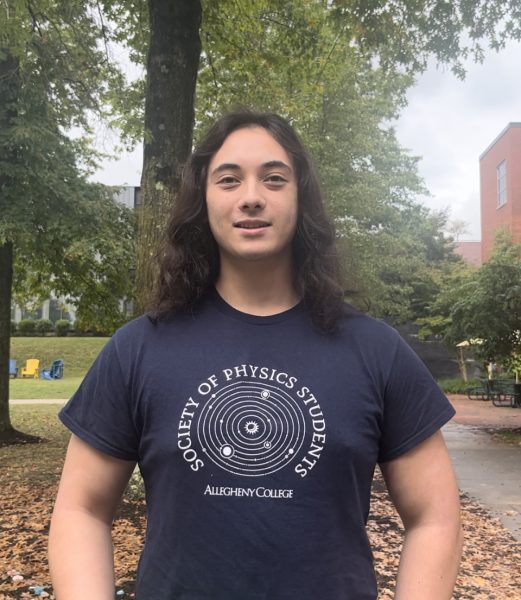Student government plans changes to existing structure
A group of Allegheny Student Government senators and cabinet members are looking to make the most radical changes to ASG’s constitution since the spring of 1970, when the framework for the current structure was formed. While nothing is official yet, the group of students are looking to restructure how student government at Allegheny works.
Though the constitution has seen many changes in the last 44 years, the current framework needs some larger scale changes according to the group of ASG senators and cabinet members. Currently, there are 51 members of ASG with room for five more. With 56 total members of ASG, that is a governing body with more than half of the total number of United States senators.
Senator Don Seitz, ’15, senator Lee Adelsheim, ’15, cabinet member and Director of Student Voting Quinn Kobelak, ’16, senator Lee Scandinaro, ’15, cabinet member and Treasurer Miguel Liriano, ’16, senator Shep Schroer, ’15, senator David Odusanya, ’18, and Haley Riley, ’16, all attended the meeting.
The current framework in ASG allows for each class to have 10 senators and a total of 16 cabinet members, though the number of cabinet members fluctuate with the needs of ASG.
“I think, presently, if anyone were to read our minutes they would see how ineffective we can be at times dealing with certain things,” said Adelsheim. “Because we’re such a large body, it’s hard for us to react to issues on campus effectively.”
Gretchen Symons, director of student involvement at the college and adviser to ASG, feels that it is effective for student government to look at itself and determine what needs updated in its current running system.
“I think in regards to the size and scope of student government, that’s something that senate and cabinet need to take a look at and figure out if the current structure or system is working in regards to the way they want it to work,” Symons said.
“Student government is the voice and representatives of students, so there should certainly be an adequate number of people expressing those opinions and those voices. Does it necessarily have to remain 10 senators per each class, maybe not,” Symons said. “Other institutions have similar senate sizes but maybe not as big of a cabinet size. Other institutions have smaller senates but a comparable cabinet size. So I think part of what ASG is doing right now is just looking to see, you know this is a system we’ve had for awhile, does it still make sense for the time that we’re living in.”
The group of students that met Wednesday, Oct. 8, decided that restructuring ASG is the most effective reaction to the all-campus forum that took place on Friday, Oct. 3, in response to the arrest of Professor Kirk Nesset.
“In our ASG meeting I mentioned this as something we need to do in order to be more effective because of last week’s forum,” said Larry Hailsham, ’15, president of ASG. “I think this is one way ASG is responding to the cry for help.”
Adelsheim echoed Hailsham’s thoughts on the forum and added the importance of student voice.
“I think that [the forum] reiterated in a lot of ways the need for student voice and student representation to have more power and influence on campus,” Adelsheim said.
During the meeting to restructure ASG, many different ideas were brainstormed to try and come up with solutions to ASG’s main issues. After doing some research on other college and university student governments, it was agreed upon that ASG stands among the few student governments having student-only committees, as opposed to other institutions which mostly have student representatives on college-formed committees.
According to Symons, the number of members on ASG has fluctuated from 53-57 members since she started in August 2008. The cyclical nature of a four-year institution creates a fluctuation in the size of the cabinet depending on the needs of ASG. While some committees may create redundancy, some have been useful to the campus community.
“The director of sustainability and environmental affairs, that position has been created since I’ve come to Allegheny and it’s found its niche,” Symons said. “It’s been helpful, especially with the Bousson and tracking conversations, really being a voice for the student government and the student body. So that’s a committee that has flourished, I think, on student government and created solid partnerships with the sustainability coordinator and other facets on campus.”
Adelsheim noted that the changes stem from the system ASG works with, not the people currently on ASG.
“I think ASG isn’t always the most respected organization on campus and I think it has the potential to have the power that would demand a higher level of respect,” Adelsheim said. “I think a lot of these reasons aren’t because of the people who are in it or the people that they fill but instead the structure that is in place.”
Hailsham feels that in the past, ASG may not have thought restructuring to be feasible.
“I don’t think people cared before and I think that was one of the main reasons nothing was done,” Hailsham said. “So you had people who were okay with how it was running, people who didn’t think that they could change it. I think we have a lot of people who are part of that group that don’t feel restriction anymore.”
A large issue that has been brought up in many ASG meetings and was talked about in this restructuring meeting was the idea of direct representation, something that ASG is attempting to combat and make more efficient. Because so many different ideas were brainstormed and discussed, the group, wants to present large changes to the constitutions all at once, instead of minute changes right away.
“[Students] should care about the issues that are going on on our campus, even if they don’t affect them,” Hailsham said. “They should care about what’s going on in ASG because we can affect them. It’s important that people make sure that they are involved and aware because up to this point it’s just been students being like, ‘somebody else will take care of it,’ and that’s not good.”
The group of students aforementioned will continue to meet and hope to have a resolution to present to the senate in the upcoming spring semester.





